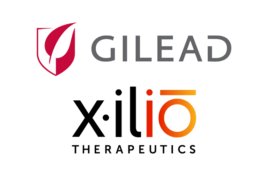
[Max Zolotukhin/Adobe Stock]
PhRMA, which counts companies such as Pfizer, Novartis, and Merck & Co. as members, finds itself on the defensive as the federal government and the public demand greater transparency and accountability in drug pricing. A recent study from KFF found that 82% of adults believe the cost of prescription drugs is unreasonable.
As prices for new drugs continue to soar, PhRMA is taking a proactive approach in its messaging. Instead of touting innovation as it has done in the past, the organization is ramping up attacks on intermediaries like PBMs as driving up costs.
For instance, in a recent PhRMA ad titled “Middlemen Are Everywhere,” a woman sits across from a doctor, who hands her a prescription. Suddenly, a lollipop-toting man in a sharp suit and tie strolls over and interjects, “I know just the pharmacy to get this filled.” Taken aback, the woman asks incredulously, “Who are you?” He smirks, “I’m a PBM.” When she asks why she can’t go to her neighborhood pharmacy, he chuckles, almost to the point of hysteria, “Well, I make more money when you go to a pharmacy I own.”
The ad is the latest salvo in a PBM-themed campaign announced in May.
PBMs on the defensive
The PBMs have more than negative PR campaigns to deal with. The organizations are facing legal challenges and other hurdles. Pharmacies and advocacy groups have filed multiple lawsuits against PBMs [when], alleging lack of transparency, spread pricing, and unfairly steering patients toward PBM-owned pharmacies. Further complicating matters, Blue Shield of California recently announced its decision to sever ties with its PBM, alleging malpractice and claiming that the PBM had overcharged its members. In the Middle District of Florida, a patient sued a PBM, accusing it of using a subpar specialty pharmacy for specialty medications.
The Federal Trade Commission (FTC) is also ramping up its scrutiny of PBMs and their potential role in spiking drug prices. In May, the agency announced that it had issued compulsory orders to two prominent group purchasing organizations (GPOs), Zinc Health Services and Ascent Health Services. These GPOs, also known as rebate aggregators, are involved in negotiating drug rebates on behalf of PBMs. Zinc serves as the GPO for CVS Caremark, while Ascent works with multiple PBMs such as Express Scripts and Prime Therapeutics. Last year, FTC took similar actions targeting a half dozen major PBMs in the U.S.
A growing number of U.S. states have also enacted new state drug price transparency legislation or amended existing legislation to control prescription drug costs, as Deloitte has noted.
Cordavis and Amazon Pharmacy: Steps toward more-transparent pricing
Faced with growing scrutiny, there are signs that the PBM market is evolving. For instance, on August 23, CVS Health unveiled Cordavis, a subsidiary that will partner\ with manufacturers to commercialize or co-produce biosimilars. Cordavis aims to develop a product portfolio that will help broaden access to biosimilars in the U.S., spurring more competition that drives down price. Cordavis has contracted with Sandoz to commercialize Hyrimoz (adalimumab-adaz), a biosimilar for Humira, in the first quarter of 2024. The list price of the Cordavis Hyrimoz will be more than 80% lower than the current list price of Humira, which remains one of the industry’s best-selling products.
Amazon Pharmacy, launched in 2018, is another potential sign of market transformation. The Amazon subsidiary aims to counteract the traditional pharmaceutical pricing models by offering affordable prescription medications directly to consumers. The online retail giant has eschewed large-scale partnerships with other PBMs, retaining a degree of independence. Amazon Pharmacy partnered with Prime Therapeutics in 2021 to provide home delivery options for Blue Plan members through Amazon Pharmacy.
While gaps exist, especially in specialty medications, Amazon Pharmacy’s model provides greater pricing transparency and potential cost savings.
With so many changes underfoot, it appears that the pushes for greater drug pricing transparency could have real momentum. While the U.S. public has long concerns about drug pricing, legislative scrutiny is building as initiatives like Cordavis and Amazon Pharmacy’s approach are emerging that will reshape the state drug pricing transparency.





Tell Us What You Think!